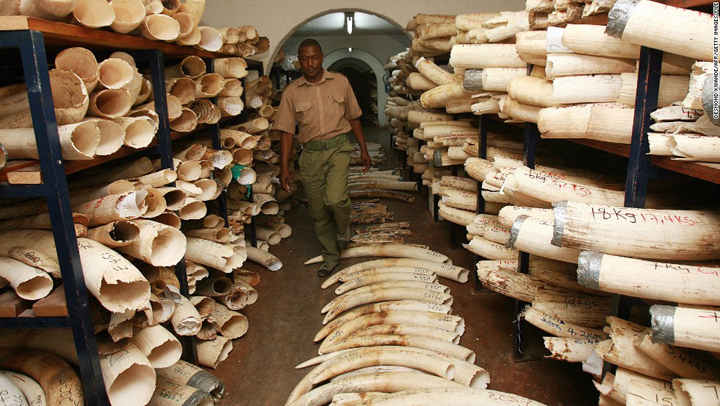 Fierce debates over ivory have dominated the global conference for the international trade in species for 30 years, since the first international ivory ban was instituted in 1989. This is no different at the 18th Conference of the Parties to the Convention on Trade in Endangered Species of Wild Fauna and Flora (CITES) wrapping up in Switzerland this week.
Fierce debates over ivory have dominated the global conference for the international trade in species for 30 years, since the first international ivory ban was instituted in 1989. This is no different at the 18th Conference of the Parties to the Convention on Trade in Endangered Species of Wild Fauna and Flora (CITES) wrapping up in Switzerland this week.
At CITES, 183 countries who are signatories to the treaty decide on which of 36 000 listed species should be traded, or not. This is to ensure that their survival and conservation is not threatened.
The variety of experiences people have of elephants underlie the debates on whether ivory should be traded or not.
On one hand, countries that have large numbers often view elephants as a threat to the communities that live close to them. These are large, potentially dangerous, animals that can affect people’s livelihoods and lives.
This explains why countries like Botswana, Zimbabwe, South Africa, Zambia and Namibia – which host about 70% Africa’s elephants – are behind efforts to get a CITES agreement on a legal and highly regulated trade of ivory. Their proposals to trade say that proceeds would be used exclusively for elephant conservation and community development programmes.
The pro-trade perspective is that tourism revenue isn’t enough to finance elephant conservation and provide adequate benefits to the communities that live with them.
On the other hand, most other African countries strongly oppose any form of legal trade. They back a complete ban in trade. These countries argue that any trade legitimises the purchase of ivory, putting their own elephant populations at risk of increased poaching. But many of these countries have few, or even no, elephants.
This deadlock over ivory has created huge tension between conservation stakeholders and countries with the majority of African elephants.
It has also led to animosity between African countries and other groups that should be working together for elephant protection. Zimbabwe for instance, home to over 80 000 elephants, indicated it could withdraw from CITES. The government argues that other countries continue to prescribe how the Zimbabwe should manage its own animals – a view supported by other southern African nations.
The vicious debates over ivory take up a considerable amount of time and energy at CITES. This means there is less time to focus on other critically endangered taxa – like orchids – that do not get the attention they deserve.
A new approach is urgently needed in which African countries with wild elephant populations develop workable solutions in a less confrontational manner.
It’s important to build a way forward using experiences from the successful resolution of conflicts – like those in South Africa and Colombia – and tensions over managing climate change.
Continued next page
(116 VIEWS)






0 Comments